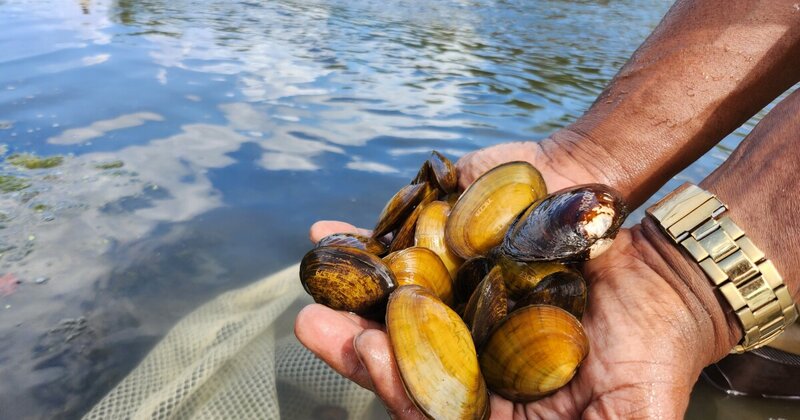The state released about 8,500 mussels into two watersheds in southeast Kansas this fall.
Stocking the state’s waters with protected mussel species is a new conservation strategy from the Kansas Department of Wildlife and Parks.
This fall, the state released thousands of mussels grown in fish hatcheries into two southeast Kansas rivers that are struggling to maintain healthy shellfish populations.
“The goal is to slowly work across both watersheds to get those populations reestablished and delisted from the state and federal endangered species act,” said Trevor Starks, a species recovery coordinator with Wildlife and Parks.
The state stocked the Marmaton River with 7,175 Fatmucket mussels – a species that’s considered in need of conservation in Kansas. And it released more than 1,300 of the federally endangered Neosho Mucket mussels into the Neosho River in Neosho County.
The Fatmucket mussels were grown at the state’s own aquatic biodiversity center near Pittsburg, Kansas, while the Neosho Mucket mussels were reared in a Missouri fish hatchery and the Kansas City zoo.
Forty freshwater mussel species reside in Kansas, according to Wildlife and Parks. But nearly 60 percent have some level of conservation concern and most have disappeared from part of the waters they historically occupied.



 Wildlife
Wildlife Conservation
Conservation Kansas City
Kansas City


